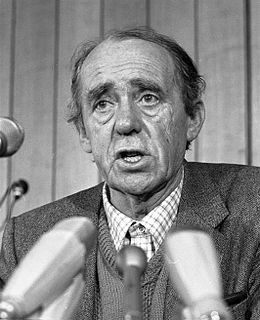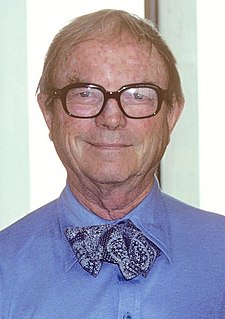A Quote by Jeanette Winterson
Every word written is a net to catch the word that has escaped.
Related Quotes
Before one is successful that is before any one is ready to pay money for anything you do then you are certain that every word you have written is an important word to have written and that any word you have written is as important as any other word and you keep everything you have written with great care.
Behind every word a whole world is hidden that must be imagined. Actually, every word has a great burden of memories, not only just of one person but of all mankind. Take a word such as bread, or war; take a word such as chair, or bed or Heaven. Behind every word is a whole world. I'm afraid that most people use words as something to throw away without sensing the burden that lies in a word.
If the lost word is lost, if the spent word is spent If the unheard, unspoken Word is unspoken, unheard; Still is the spoken word, the Word unheard, The Word without a word, the Word within The world and for the world; And the light shone in the darkness and Against the Word the unstilled world still whirled About the center of the silent Word. Oh my people, what have I done unto thee. Where shall the word be found, where shall the word Resound? Not here, there is not enough silence
We are in love with the word. We are proud of it. The word precedes the formation of the state. The word comes to us from every avatar of early human existence. As writers, we are obliged more than others to keep our lives attached to the primitive power of the word. From India, out of the Vedas, we still hear: On the spoken word, all the gods depend, all beasts and men; in the world live all creatures...The word is the name of the divine world.
The Bible is the written word of God, and because it is written it is confined and limited by the necessities of ink and paper and leather. The Voice of God, however, is alive and free as the sovereign God is free. 'The words that I speak unto you, they are spirit, and they are life.' The life is in the speaking words. God's word in the Bible can have power only because it corresponds to God's Word in the universe. It is the present Voice which makes the written word powerful. Otherwise it would lie locked in slumber within the covers of a book.
The secret of good writing is to strip every sentence to its cleanest components. Every word that serves no function, every long word that could be a short word, every adverb that carries the same meaning that’s already in the verb, every passive construction that leaves the reader unsure of who is doing what—these are the thousand and one adulterants that weaken the strength of a sentence. And they usually occur in proportion to the education and rank.






































